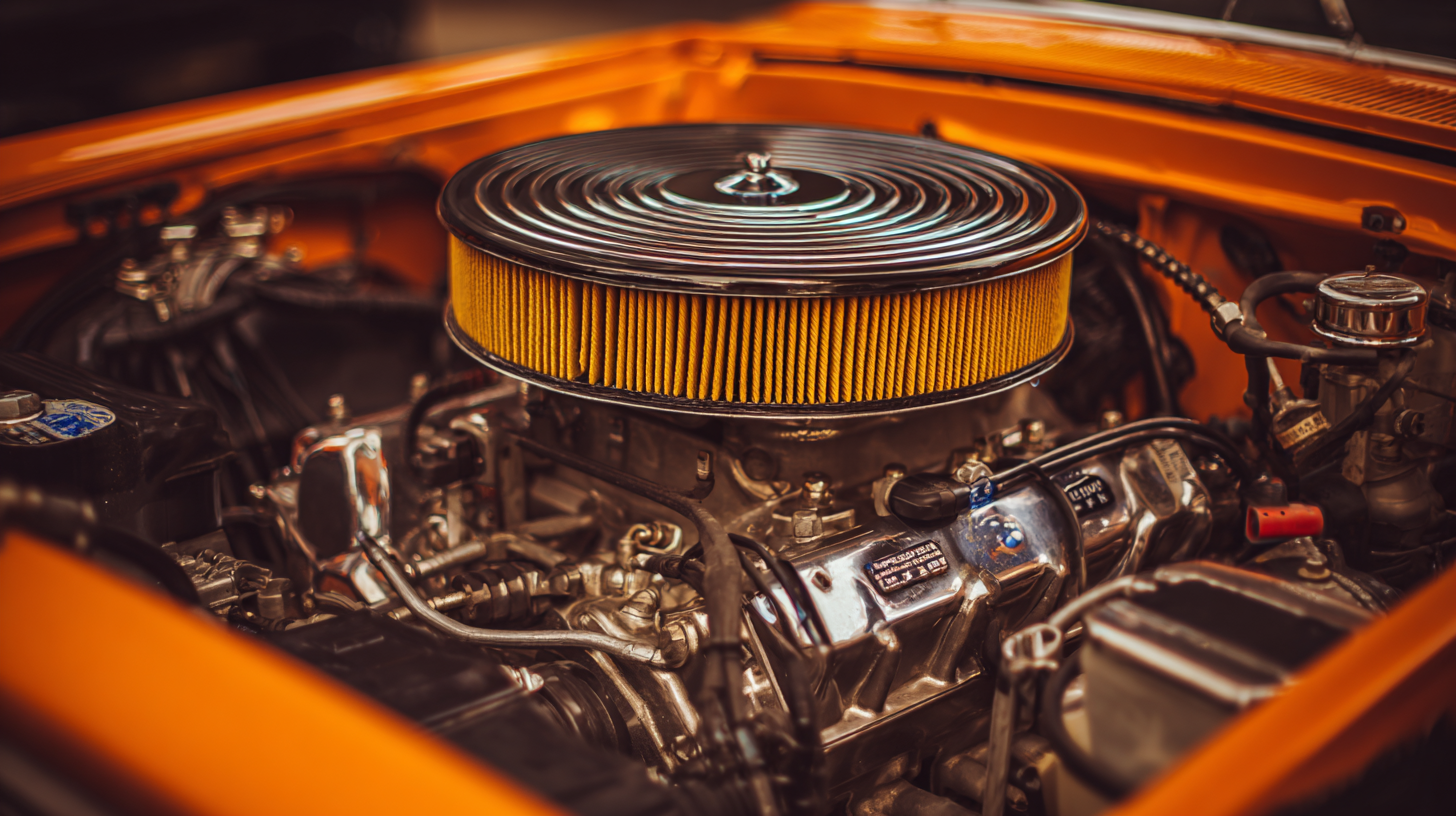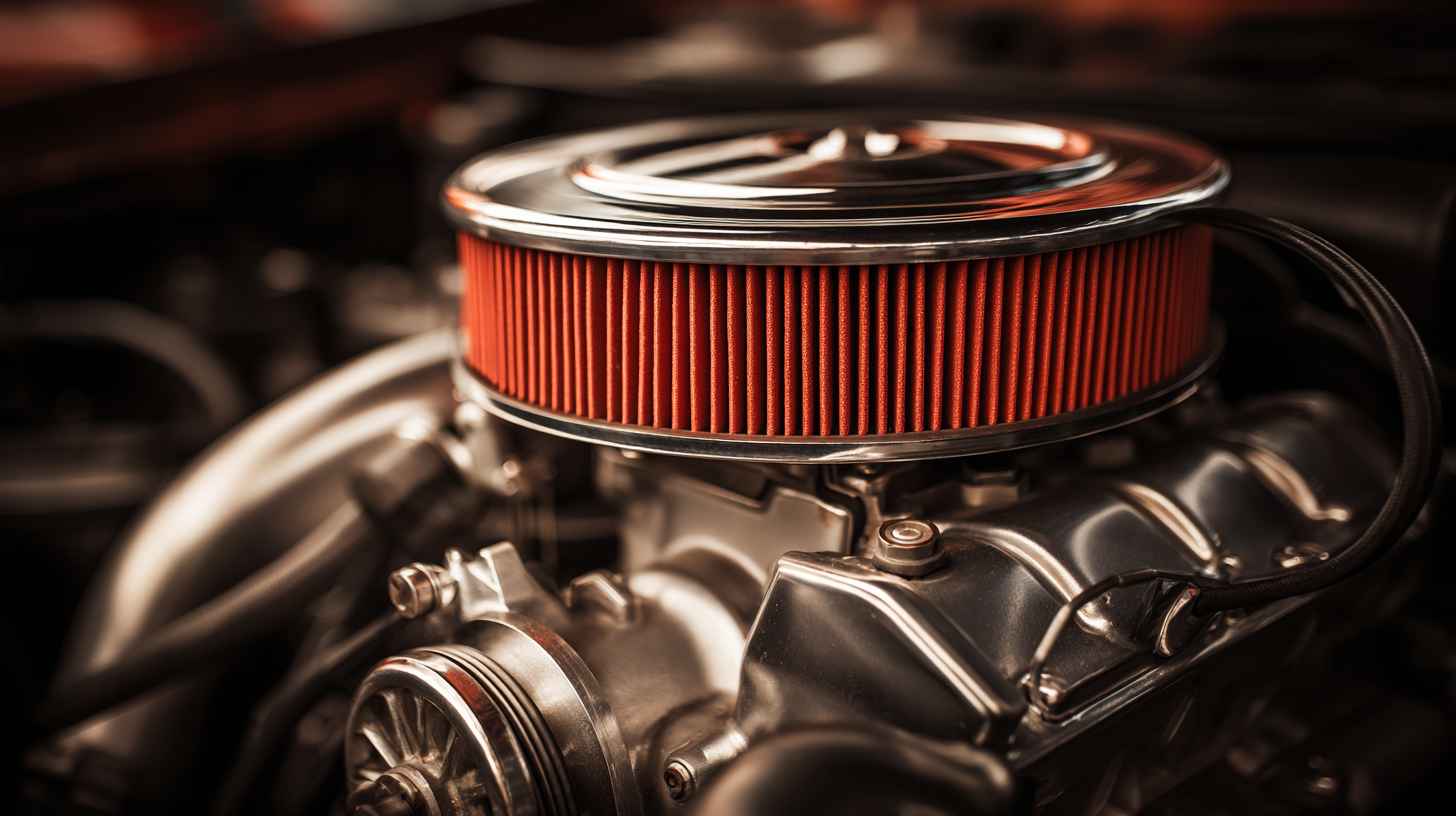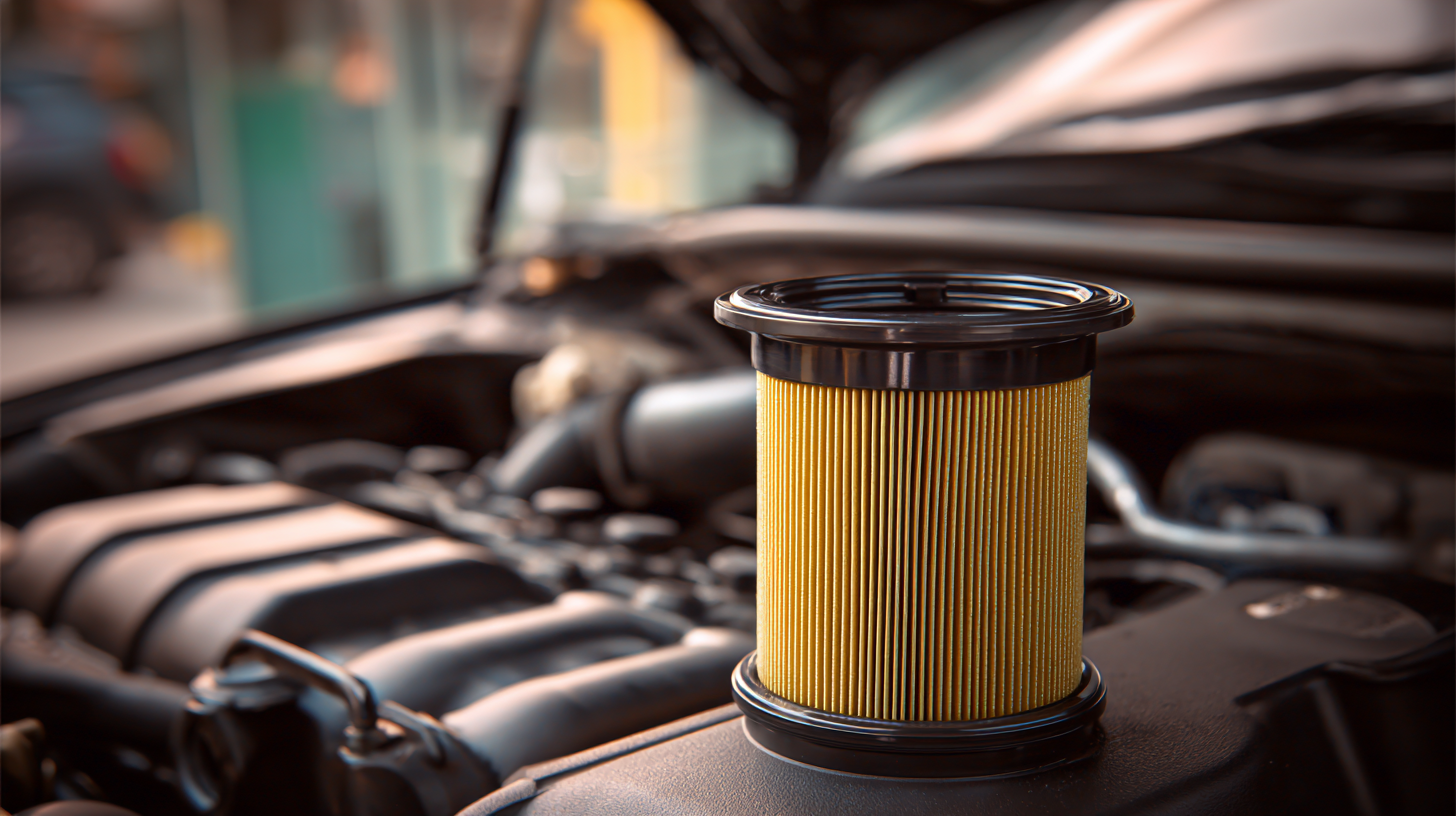Choosing the right engine filter is crucial for maintaining the performance and longevity of your vehicle, yet many car owners overlook its importance. According to industry reports, up to 80% of engine wear and tear can be avoided with the proper filtration system in place. An effective engine filter not only protects the engine by trapping harmful contaminants but also improves fuel efficiency and reduces emissions.

With an increasing number of vehicles on the road—estimated to reach over 1.4 billion by 2025—understanding how to select the best engine filter has never been more vital. This blog will provide you with seven essential tips to help you navigate the complex market of engine filters, ensuring that you choose the most suitable option for your vehicle’s specific needs.
When selecting the best engine filter for your vehicle, it's crucial to understand the various types and their distinct functions. Engine filters play a vital role in maintaining optimal performance by preventing contaminants from entering the engine. The most common types of engine filters include oil filters, air filters, and fuel filters. Each of these filters serves a specific purpose in protecting your engine and ensuring its longevity.
Oil filters work by removing impurities from the engine oil, which can cause wear and tear on engine components if not filtered out. A clean oil filter is essential for maintaining proper lubrication and reducing friction. Air filters, on the other hand, are designed to prevent dirt, dust, and debris from entering the engine's air intake, which can hinder combustion efficiency. Lastly, fuel filters are critical for ensuring that the fuel entering the engine is free from contaminants that could lead to performance issues or engine damage. Understanding these differences is key to selecting the right engine filter and ensuring your vehicle runs smoothly.

When selecting the best engine filter for your vehicle, understanding the key features can greatly enhance your engine's performance and longevity. According to the International Automotive Engine Filter Association, the right engine filter can improve filtration efficiency by up to 98%, effectively protecting vital engine components from harmful contaminants. This underscores the importance of choosing a filter that caters to your vehicle's specific needs.
One critical aspect to consider is the filter's media type. Synthetic filters typically offer superior dirt-holding capacity and longer service intervals compared to their paper counterparts. For instance, a study by the Society of Automotive Engineers found that synthetic oil filters can last up to 15,000 miles without significant loss in filtration efficiency. Additionally, check the filter’s bypass valve, which ensures oil flow to the engine even when the filter is clogged — a feature vital for maintaining proper lubrication during engine operation.
Moreover, pay attention to the filter's compatibility and construction quality. High-quality filters are designed to meet or exceed OEM specifications, ensuring a snug fit and preventing leaks. A report from the Automotive Aftermarket Suppliers Association emphasizes that using high-grade filters can contribute to a 25% increase in engine lifespan. By focusing on these essential features, you can make an informed choice that keeps your engine running smoothly for years to come.
When it comes to maintaining your vehicle's performance, selecting the right engine filter is crucial. The importance of compatibility cannot be overstated. An engine filter that fits improperly can lead to inefficiencies, impacting everything from fuel economy to engine longevity. It's essential to ensure that the filter not only matches your vehicle’s specifications but also aligns with its specific performance needs. This requires a thorough understanding of your vehicle’s make, model, and engine type, as well as consulting your owner’s manual or trusted auto parts sources.
Moreover, the investment in a compatible engine filter pays off significantly. A well-fitted filter acts as a barrier, preventing dirt and debris from entering the engine, thus contributing to cleaner operation and reduced wear and tear. It also ensures that your vehicle runs smoothly and reliably, which is fundamental for any driver. In short, taking the time to choose a filter that fits like a glove can help maintain optimal engine performance, ultimately extending the life of your vehicle and enhancing your driving experience.

As the automotive industry evolves, so does the technology behind engine filters, significantly enhancing their efficiency and effectiveness. Recent studies indicate that advanced filtration technologies can increase filter efficiency by up to 98% compared to traditional options. This leap in performance is primarily due to the implementation of synthetic media, which offer superior dirt-holding capacity and improved airflow. The adoption of nanotechnology in filter design has led to even smaller pore sizes, enabling these filters to capture finer particles and contaminants, thus prolonging engine life and maintaining optimal performance.
Moreover, the integration of smart technology in engine filtration systems is reshaping the landscape of automotive maintenance. For instance, smart filters equipped with sensors can monitor filter saturation levels in real-time, notifying drivers when it's time for a replacement. Reports from industry leaders suggest that such innovations could reduce filter-related maintenance costs by up to 30% over the lifespan of the vehicle. As vehicle performance standards continue to rise, the emphasis on high-efficiency filters will play a crucial role in meeting stringent environmental regulations while ensuring optimal engine performance.
When it comes to prolonging the life of your engine filter, regular maintenance is key. A clean engine filter not only enhances engine performance but also contributes to better fuel efficiency. One of the simplest yet most effective tips is to regularly inspect and clean your engine filter. This practice can prevent dirt and debris from accumulating and ensures that the filter is functioning optimally. Depending on your vehicle type—diesel trucks, for instance—you may need a tailored approach; monitoring filter health through advanced sensing technology can help you gauge when to clean or replace filters.
Another critical aspect of maintenance is adhering to your vehicle's service schedule. Ensure that you replace the engine filter at recommended intervals, which can be found in your owner’s manual. Additionally, consider using high-quality filters that meet or exceed the original equipment specifications; this small investment can significantly enhance longevity and protection for your engine. Lastly, always keep an eye on the environment where you drive; harsh conditions can lead to increased contaminants in the air, necessitating more frequent maintenance of your engine filter to maintain optimal performance.
